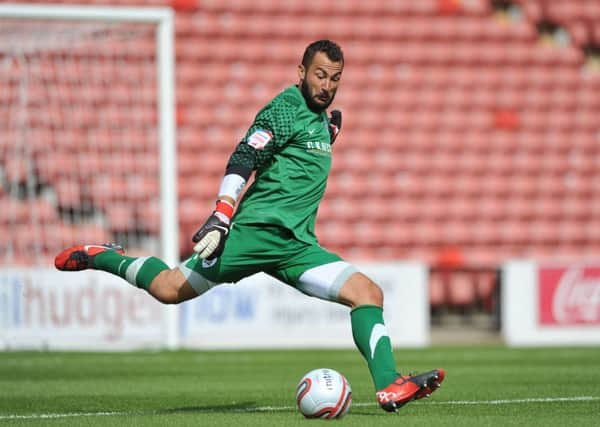David Preece: The precariousness of a modern day professional footballer's career path


For some, it’s a question that comes without an answer, such is their blinkered focus upon achieving their childhood dream.
Often you’d get a reply of “I’ve no idea what I would have done,” or “ This is all I’ve ever wanted to do,” and it would be the absolute truth.
They really would have no idea what they would have done.
Advertisement
Hide AdAdvertisement
Hide AdSat as I am now writing this, it’s easy for me to say I’d have been a writer or journalist if I hadn’t been one of the lucky ones, but in all honesty it wasn’t until I was in my late twenties that I put real serious thought into it.
At 18 or 21, my answer would have been the same.
I’d given some thought to the answer whenever I was coming to the end of a contract, particularly when I was younger and the insecurity of the game gripped me harder, but it was fleeting.
I’d briefly wonder to myself what I would do if the worst came to the worst.
The loss of perspective football can give you meant the worst thing I could ever think of ever happening to me at that time was to suffer an injury so bad I could never play football again.
Advertisement
Hide AdAdvertisement
Hide AdAt that time, actual death seemed a much easier pill to swallow than the death of my dream.
In those moments which were few and far between, the ones when I’d pose myself that same question of a different career, I’d flit between what I thought my options could be.
At school, after my careers advisor had spent the majority of our time together saying “No, David. You’re not going to be a footballer. What do you really want to be?”
I’d then be pushed towards being a PE teacher, the next obvious step for young failed footballers in her eyes. I’d just nod and say “Yeah, that’s what I want to be,” just so I’d be allowed to leave the room.
Advertisement
Hide AdAdvertisement
Hide AdI’d thought about becoming an accountant, but the E grade I received on my Accounts GCSE exam put that thought to bed early enough for me not to inflict serious financial harm on to any potential clients of mine. I always was more of a words than a numbers man, clearly.
One of the more intriguing thoughts I had was on a flight to Rhodes as a 16-year-old at the end of my first year apprenticeship.
I hadn’t played a great deal of games for the youth team at that point and I was weighing up whether being a flight attendant would be a good move for me.
Notice my ambition away from football waned greatly, which is probably quite telling in a way.
Advertisement
Hide AdAdvertisement
Hide AdLooking back I probably should have thought “Yeah, an airline pilot seems an exciting job,” but then again, I was only a stupid footballer after all. I’d probably already been told I was clever enough to fly planes.
The reasons for me talking about this subject of alternate career paths is because there will be approximately seven hundred footballers out there whose contracts expire at the end of June, without the prospect of them being renewed.
Many of them will be under 21 and as ambitious as they may be, however much they believe in themselves, the odds are stacked against the majority of them.
Most of them will be asking themselves what they can do now.
Advertisement
Hide AdAdvertisement
Hide AdThere’s a huge decision for them to make; should they keep on pursuing their dreams or cut their losses and start afresh with a new career away from the game?
Sometimes, as I found, it’s best if you avoid asking yourself the question when you’re young.
When everything, including the statistics, is telling you that you’re not going to make it, ignorance can be a blessing that keeps you focused on what you want to achieve.
What you have to do is go into this game knowing full well its precariousness.
Advertisement
Hide AdAdvertisement
Hide AdInjury, loss of form and the tide of time are all barriers that need to be overcome to stand any chance of ‘making it’ even before you’ve come across any opponent in the flesh.
Even when your playing days are over and you move into coaching as I have, the instability only increases as I have found this season.
I left my position as a coach at Lincoln City at the end of last month when the manager stepped down and now I’m being asked the question again, albeit in a different form, of “What are you going to do now?”
That trip to Rhodes came back to me this week as I sat on another plane pondering my next move.
Advertisement
Hide AdAdvertisement
Hide AdThe answer to that is uncertain at the moment, but like we’ve already established, nothing is ever certain in this game.
You learn to accept it the instability, shrugging it off by saying “That’s just football.”
Now, it’s a case of waiting by my telephone, for football to come calling again.